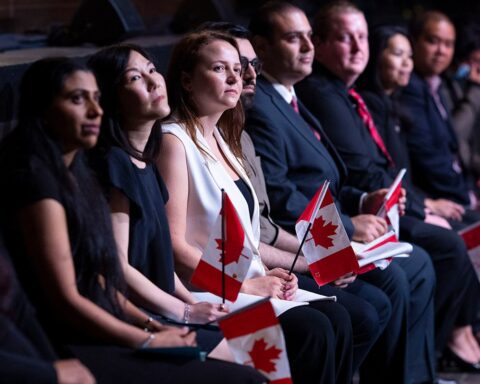Liberal leader Justin Trudeau promised to replace the first-past-the-post electoral system of Canada during the last federal election campaign a year ago. Now that he is prime minister with a parliamentary majority, there is an expectation from opponents of that electoral system that he will deliver on a promise that he should never have made.
Opponents of the first-past-the-post system advance romantic ideas of better representation of the range of opinions of Canadians to make their case, but romanticism does not make for good policy. Fact is there is already more than adequate representation in Parliament of the diversity of Canadian opinions, and at the same time, groups on the extremes cannot easily dictate to the majority. (Under the current system, the candidate with the most votes is declared elected in every riding.)
In the current debate on electoral reform, the positions taken by the four national parties do not represent any romantic ideas of democracy. They represent nothing but their own best interests.
Party positions
The Green Party and the NDP, who always elect a smaller percentage of Members of Parliament (MPs) than their shares of the vote, want proportional representation (a system under which the number of MPs would mirror a party’s popular vote).
The Conservatives, who have benefited from the first-past-the-post system and who know that no other system would work better for them, reject any electoral reform.
The Liberals, who know that they would benefit from preferential balloting since it favours middle-of-the-road parties (it is a system under which a voter ranks all candidates by order of preference), are said to support this system, although they have been careful not to admit it publicly.
If partisan interest is ignored, it is abundantly clear that the current system is not only good enough, but that it is the best possible system.
Just ask any immigrant if they prefer the Canadian system or the system used in their country of origin. Our voting system is why many immigrants come here.
Reflecting popular will
When it is convenient to them, politicians tell us that Canada is the best place in the world. We certainly are one of the best places, and that is because we have a political system that is able to govern Canada efficiently through changing times, while remaining representative of the general will of Canadians.
Proportional representation exists in other countries, and it certainly delivers on the promise to elect politicians that represent diverse opinions. However, it does so at a high price.
Smaller parties with narrow interests often become essential in forming government coalitions and are able to dictate their narrow agendas. This phenomenon is very visible in Israel, a country that uses proportional representation, as Haaretz explains in “Ultra-Orthodox Parties Are Back in Power and Israelis Aren’t Thrilled About It”.
The first-past-the-post system does not prevent politicians with minority opinions from being elected, but to be elected, they usually have to work within a party that has broad appeal. For example, the Conservative party includes MPs who wish to ban abortion, even though that is not the policy of the party. Under this system, MPs who hold minority opinions must convince others to support them, which is a good democratic practice. They cannot ram through unpopular changes by being power brokers.
The first-past-the-post system also does not prevent the emergence and the viability of third parties, although it does require them to have broader support than they would need under proportional representation. Five parties are currently represented in the Parliament of Canada, a consistent pattern over the last few decades, including the NDP, the Greens, the Liberals, the Conservatives and the Bloc Québécois.
Majority government
While it includes minority representation, the fact that the first-past-the-post system usually results in majority governments means that it offers the advantages of political stability and the ability to make tough choices. The Canada-U.S. free trade agreement (later followed by the North American Free Trade Agreement, NAFTA) is now seen by all political parties as beneficial to Canada, but that agreement would not have occurred under proportional representation since the Conservative party was at that time the only party supporting it.
Preferential balloting could be seen as a reasonable compromise, since it would likely maintain the benefits of majority governments while giving voters the feeling that their votes are more influential than under first-past-the-past. However, there would be a diminished diversity of opinions represented in Parliament. Under preferential balloting, centrist views would gain an advantage since this is typically the second choice of people on either side of an issue. Therefore, less mainstream opinions would have a harder time being heard.
Delivering on election promises is typically good politics, but it is not good politics when the promise itself was foolish. Prime Minister Trudeau should do what is best for Canada, not what is best for his party – keep the electoral system as it is because it is the best in the world.
Fred Maroun is a Canadian of Arab origin who lives in Ottawa. He lived in Lebanon until 1984, including during 10 years of civil war. He writes at Gatestone Institute, The Times of Israel, Jerusalem Online, and Jerusalem Post.
Fred Maroun is a Canadian of Lebanese origin who lives in the Ottawa area. He has written extensively on the Israeli-Palestinian conflict, including about 200 posts in a Times of Israel blog. Fred Maroun has also written for The Gatestone Institute, The Jerusalem Post, New Canadian Media, and others.





